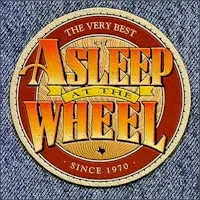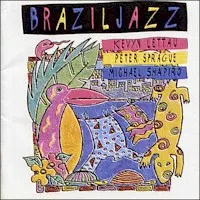Time: 39:25
Size: 90.2 MB
Styles: Piano jazz
Year: 2010
Art: Front
[6:23] 1. Alfies Theme
[5:27] 2. God Bless The Child
[7:37] 3. Bluesville
[6:36] 4. Willow Weep For Me
[8:47] 5. Wadin'
[4:33] 6. F.S.R
Charlie Parker once said that he needed a rhythm section like old slippers. Bird's meaning was clear. He wanted a backing trio of handpicked musicians that he had frequently encountered. Men who would supply warm and comfortable accompaniment. Three who thought and flowed as one, and styled their support to suit the flights and fancies of the soloist. There have been many notable rhythm sections in modern jazz - from Haig/Potter/Roach through Silver / Heath / Blakey, Kelly / Chambers / Cobb, Clark / Warren / Higgins to Hancock / Carter / Williams and Tyner / Garrison / Jones. One of the best functioned as three-quarters of the Playhouse Four and appeared on a series of outstandig Blue Note albums in the early 1960s. The components of that perfectly balanced threesome who lit the fires under a dozen memorable dates for Alfred Lion were pianist Horace Parian, bassist George Tucker and drummer Al Harewood. Besides trio sessions they were involved in a series of quintet albums using a front line of Stanley and Tommy Turrentine, several recordings with the fourth member of the Playhouse Four, tenor saxophonist Booker Ervin, and the memorable Blue Note debut of Dexter Gordon - Doin' Allright. Their work on those LPs 25 and more years ago made a profound impression on a young Dutch saxophonist who at just about that time made the switch from alto to tenor saxophone - Joe van Enkhuizen. Saldy, the partnership was broken by the untimely death of the redoubtable George Tucker, arguably the most rhythmically exciting bassist of his time in 1965. More than 20 years elapsed before Joe was able to realise most of his dream, and the occasion was his first self-produced album. Since Joe was calling the shots he booked Horace and Al and joining them in this All American Rhythm Section was the immensely talented Rufus Reid. If you had to pick a worthy successor to George Tucker you could't do any better than the rock-steady Rufus.
Joe has again presented us with an excellently balanced program which opens and closes with thoughtful tributes to Sonny Rollins. "Bluesville" is an earthly line from the pen of alto saxophonist Sonny Red Kyner. The other composers represented in this set are Horace Parian whose "Wadin'" was first heard on his Us Three LP in 1960, and Ann Ronell whose "Willow Weep For Me" has served as inspiration for many Jazz players including Bud Powell and Dexter Gordon. On these tunes, Joe confirms his allegiance to the soulful school of tenormen. His penchant is for a vivid, robust and vocal form of expression. He employs a wide range of the horn's sonorities. His clear, vibrant tone has the stamp of individuality which is the equivalent of the painter's signature. Joe's jazz encompasses the attitude of an entire generation towards improvisation. Regardless of whether you were a Netherlander or a New Yorker in the 1960s. If you were remotely interested in jazz, you moved and grooved to a hard bop beat. That's where it is on Rollin's "Alfie's Theme", the most catchy of the melodies that Sonny wrote for the 1966 British film Alfie. This 32-bar tune in the AABA form has a bluesy and surging feel that acts as propulsion to the soloists. Joe wails it, but in an economical statement refrains from overblowing. Note Horace's march-like prompts and the beautiful walking of Rufus' bass. Horace gets to the heart of the matter in his mesmeric portion with Al laying down righteous percussive patterns. Good groovin' indeed!
Bass – Al Harewood; Drums – Joe Van Enkhuizen; Piano – Horace Parlan; Tenor Saxophone – Rufus Reid.
Joe has again presented us with an excellently balanced program which opens and closes with thoughtful tributes to Sonny Rollins. "Bluesville" is an earthly line from the pen of alto saxophonist Sonny Red Kyner. The other composers represented in this set are Horace Parian whose "Wadin'" was first heard on his Us Three LP in 1960, and Ann Ronell whose "Willow Weep For Me" has served as inspiration for many Jazz players including Bud Powell and Dexter Gordon. On these tunes, Joe confirms his allegiance to the soulful school of tenormen. His penchant is for a vivid, robust and vocal form of expression. He employs a wide range of the horn's sonorities. His clear, vibrant tone has the stamp of individuality which is the equivalent of the painter's signature. Joe's jazz encompasses the attitude of an entire generation towards improvisation. Regardless of whether you were a Netherlander or a New Yorker in the 1960s. If you were remotely interested in jazz, you moved and grooved to a hard bop beat. That's where it is on Rollin's "Alfie's Theme", the most catchy of the melodies that Sonny wrote for the 1966 British film Alfie. This 32-bar tune in the AABA form has a bluesy and surging feel that acts as propulsion to the soloists. Joe wails it, but in an economical statement refrains from overblowing. Note Horace's march-like prompts and the beautiful walking of Rufus' bass. Horace gets to the heart of the matter in his mesmeric portion with Al laying down righteous percussive patterns. Good groovin' indeed!
Bass – Al Harewood; Drums – Joe Van Enkhuizen; Piano – Horace Parlan; Tenor Saxophone – Rufus Reid.
Joe Meets The Rhythm Section




















